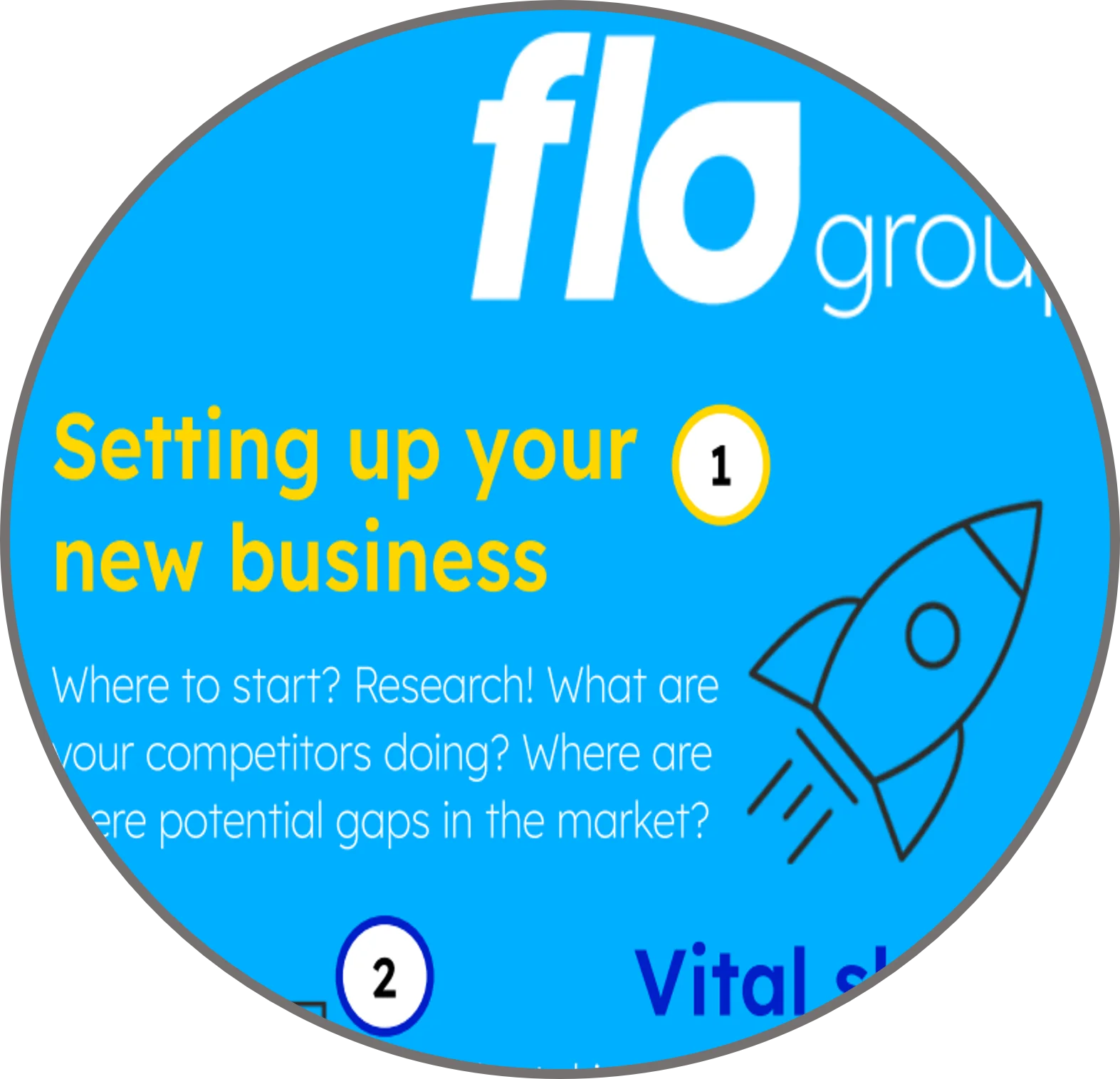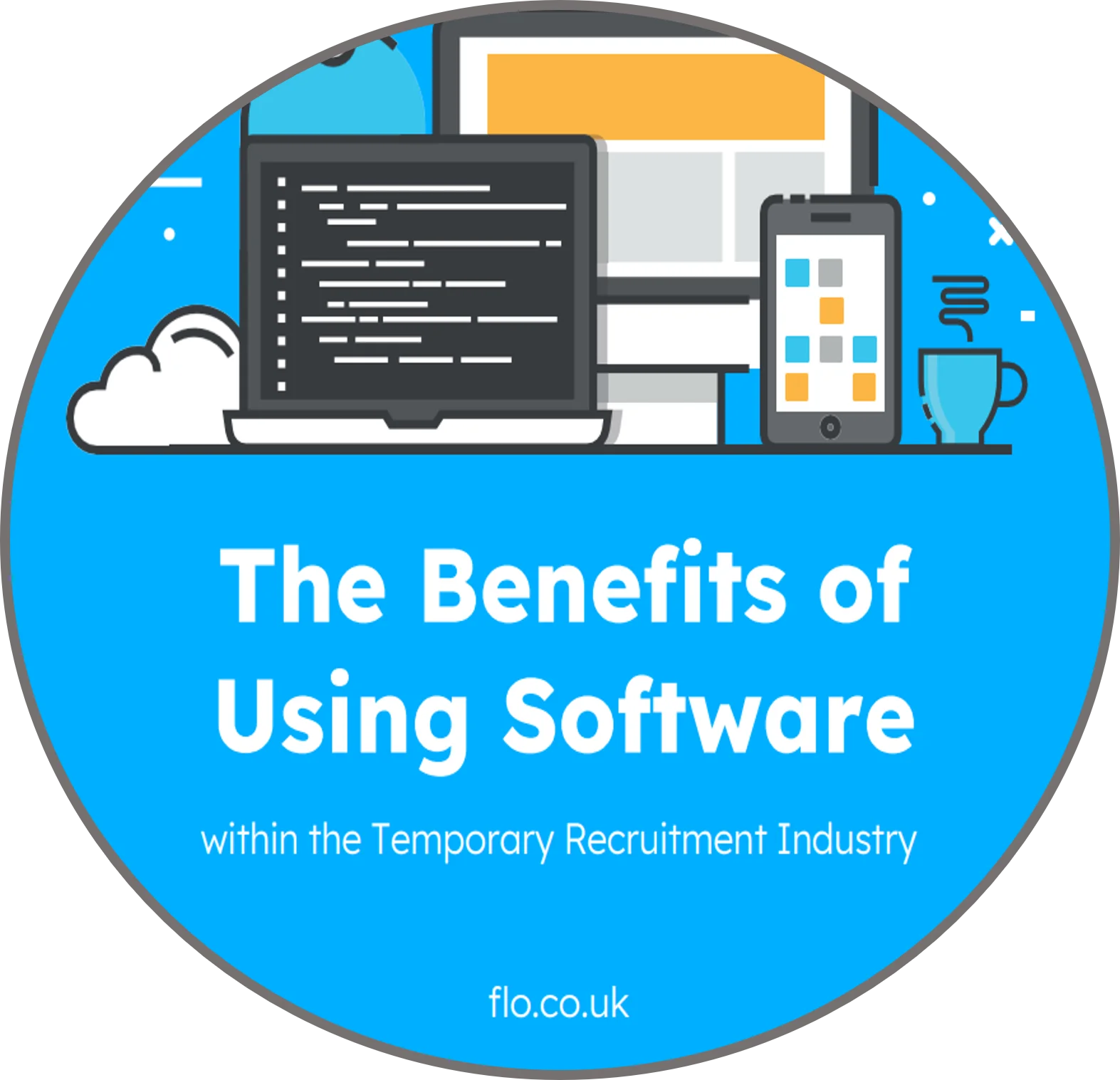
How To Start A
Recruitment Agency
The Essential Guide
Hints, tips and resources to get your recruitment agency off the ground, in the most successful way.
Table of contents

First things first
The decision to start a recruitment business is usually made either because an individual has experience in recruitment or because they have enough knowledge about a particular industry to recruit within that sector.
Research is key
Whether your recruitment business is operating within a certain industry, only supplies a certain type of role, or only recruits within a certain area, it is important to analyse the market and your competitors. Identifying opportunities and threats, and allowing for a better understanding of your clients and candidates. Enabling a sound business strategy, establishing and growing your brand.
Evaluate Your Skills
Before you put a more detailed plan together, it’s important to evaluate your skills and identify any gaps in your knowledge. Business skills are important as a fundamental component of starting, operating and managing a successful recruitment agency.
Vital skills
- Ambition ambition is what drives people to new heights. It creates the motivation to improve, to grow a business or accomplish other meaningful goals
- Sales experience or sales ability to ensure the services of your recruitment agency are heard above your competitors
- Commitment is about having the courage to go through the unknowns and deal with the demands of a busy, competitive recruitment industry
- Customer service with ever increasing competition on margins, the focus has to be on the service you provide to make you memorable and stand out
- Personable providing a fantastic service and focusing on building relationships will ensure that clients and candidates keep coming back
Planning Your Recruitment Business
It is crucial to have a clear idea of how your recruitment business will operate over the next 12 months to establish how you can measure how effectively your business is performing in comparison to your objectives, setting SMART goals can be a great start.
As a start-up recruitment agency, you will have limited resources, and a plan gives you a strategy that allows you to implement those resources most efficiently.
Business Planning
Calculating realistic starting costs and creating a business plan are important initial steps as a recruitment agency start up.
Not only do these tasks play a part in organising the process but they will help to locate potential issues not previously considered.
Include:
- The type of recruitment agency you will be running and why you believe it will be successful
- How you plan to generate revenue
- Your target clients and the services that they are looking for
- Your USP and the competitive advantages that your agency will have over others
- Where you believe your recruitment agency will be positioned in the market
- Your marketing strategy and why you feel these methods will work

Contacts
Arguably the most important thing needed to set up a recruitment agency is a list of contacts. Having both client and candidate contacts is going to be crucial in your first twelve months but also something you need to invest time in, to successfully grow.
Workspace
When setting up a new recruitment agency, it isn’t vital for you to have an office straight away, providing that you have a phone line and internet connection you can run your agency from anywhere really. If you choose this approach in the early days, you could utilise a virtual office.
Training options
Although no specific training is required in order to start your own recruitment business, it can be helpful to take a course that provides you with a full overview of the industry, or areas you are least confident about while launching your own venture. You then have an enhanced knowledge base from the start.
Recruitment Compliance
Recruitment agencies are tightly regulated and must comply with a series of statutory rules.
All recruitment agencies must comply with the Employment Agencies Act 1973 and the Conduct of Employment Agencies and Employment Businesses Regulations 2003 as a minimum. There are various sector specific requirements too, that need to be researched and implemented.
To find out more, this is a useful resource: laws and regulations
Organise legal contracts – all contracts must be in line with the most recent recruitment legislation to protect you in the instance of any disputes.
Selecting the right insurance for your recruitment agency
Comparing insurance policies ensures that you get the cover you need at a competitive price, you will be required to purchase certain types of insurance to protect your business and any future employees, including:
1
Employers’ liability cover
2
Professional indemnity cover
3
Public and products liability cover
Choosing relevant recruitment software
It’s vital that you have the right tools to help you organise contact details and candidate information whilst helping you accurately manage your compliance.
WorkFlo: Recruitment Software
A complete recruitment software management platform for temporary recruitment agencies
From managing bookings and processing timesheets to training and support, we know that all the details in your business matter. Which is why WORKFLO allows you to sweat the small stuff, without actually sweating the small stuff.
Outsourcing functions
Many businesses have long endorsed outsourcing of certain functions, that are essential but don’t often directly correlate with strategic business matters. So what is there to gain? Is it worth the time to explore the outsourced recruitment payroll service options out there? A resounding yes would be the answer!
Advantages of payroll outsourcing for your recruitment agency
- Free up your time and that of others in your team in this area. Allowing you to focus on essential and money-making tasks
- Increase accuracy of payroll processing and decrease errors and risk, giving you access to experts in their field and ensuring complex tasks are completed thoroughly
- Reduce costs, when considering the elements needed to run payroll – including the necessary technology, printer, ink, paper, expertise to list just a few!
- Remove the need to personally stay on top of legislative requirements and tax procedures. Plus the training (and retraining as people leave) and the monitoring this would require
- Beneficial complimentary services such as a technology platform. You should have access to a versatile agency software package to base your business admin around
- Cost flexibility – you only pay for the service levels used
- A secure and reliable offering, with good controls in place
Recruitment Funding – Introducing invoice finance
Controlling the cash flow of any temp staffing agency can prove a challenge at times, with the obligation to often pay workers weekly while clients work to 60 day credit terms on average. Insufficient funds can mean quickly the growth of a business can be impacted and ultimately put the overall business survival at risk.
The concept for recruitment invoice finance is quite simple. Rather than having to wait weeks for your invoices to be settled by your customers, a lender uses an outstanding invoice as funding security, giving you quick access to a large portion of that invoice almost immediately.
You can borrow up to 90% of the invoice value usually. The lending company will handle your sales ledger and collect due payments for you – removing the cost of the finance service itself – before paying you the remaining balance.
Advantages of recruitment finance:
- A straight forward process – from initial dealings to weekly trading
- Cash flow – one of the biggest advantages to an invoice financing facility is the improvement it can make to your available funds
- Funds accessed quickly – they can often be released within 24 hours of it being available to a customer
- Flexibility of facility – the amount you can borrow increases as your earnings do, allowing you to access more funds than through a more traditional loan or bank overdraft
- Qualifying ease – for most companies without financial issues or unfavourable credit history, invoice finance is fairly straightforward to be eligible for
- No security issues – in many cases the invoice alone is the only security that is needed, you won’t have to offer up physical assets from your company and customer creditworthiness is in the hands of the lender
- Credit control services – are managed on your behalf by the recruitment finance lender – so instead of chasing late-paying customers, your time is freed up to focus on growing your business
- Ability to extend payment terms – having the flexibility to alter payment terms when needed, to meet industry standards or customer expectations, can be a real bonus

This depends on a number of factors including; how much you have to invest, what you need to invest to get of the ground and also how quickly you want your recruitment business to launch. In addition you would need to consider how you intend to run your business and how you plan to attract clients and candidates. It is worth calculating how much you can realistically live off in the first few months, plus how long you think it will take for revenues to start coming in.
Budget setting is essential and it is worth working out your set up costs with your ideal ‘set up’ firstly, including your own monthly outgoings and fixed set up costs to get off the ground. For example, company registration, website, company branding and accountancy fees and also more day-to-day expenses.
In a highly competitive industry this can take some creativity. The oldest approach and still frequently used is cold calling. This can require persistence, a thick skin and can be time consuming, but is a tried and tested method.
LinkedIn is a great way to network with both customers and candidates, allowing you to connect with your desired groups. Be active regularly on the platform, make sure your profile is completed and join relevant groups.
A free or low cost automation tool can speed up posting, so you can schedule messages to be consistent ang go out across multiple platforms at the same time.
Email marketing can be an effective tool, to both reach new potentials and keep in touch with existing clients, just tailor messages accordingly and ensure you are compliant with this approach.
Networking and exhibitions are a great way to start building a rapport initially and a time efficient solution to meet both new clients and maintain existing relationships.
This is not a legal requirement, however to remain up to date with industry knowledge, learn best practice and present yourself in a professional light, The Recruitment & Employment Confederation (REC) is a great starting point.
“ We drive standards and empower recruitment businesses to build better futures for their candidates and themselves. We are champions of an industry which is fundamental to the strength of the UK economy. “
I have worked with Flo since opening my business. I am a start-up and although coming from a recruitment background I certainly wasn’t great at the back office side of things and without Flo I honestly don’t know what I would have done to navigate everything.







Social Media For Your Recruitment Agency
Social media is an indispensable tool in the recruitment world, offering new opportunities to build relationships and build your brand’s reputation.
Attract candidates
Huge numbers of potential candidates will be using social media making it the perfect platform to advertise current vacancies. Potential candidates are able to see, share and respond to your posts meaning your message is spread further, and quickly, essential for building up a candidate base and encouraging engagement.
Build your recruitment agency reputation
You can build your reputation and highlight how credible your recruitment agency is by using social media. For example, by being quick to respond to candidates and clients, sharing content from trusted news sources and interacting with followers, you can build your reputation as a knowledge source in the recruitment industry.
Differentiate your brand
Social media allows you to create a voice for your recruitment agency, which can be developed to reflect your brand’s positioning and convey how unique your agency is in comparison to the rest of the industry. Whether it’s through quirky customer interactions or highlighting your company’s USPs, social media can be a very effective tool for making your brand stand out.
PR
Many companies spend large amounts of money trying to build their PR strategy. Yet social media is a free channel that allows you to lay the foundations of your PR campaigns. You can give opinions on current industry topics and share company news to a large audience, whilst encouraging interaction and engagement with this content.